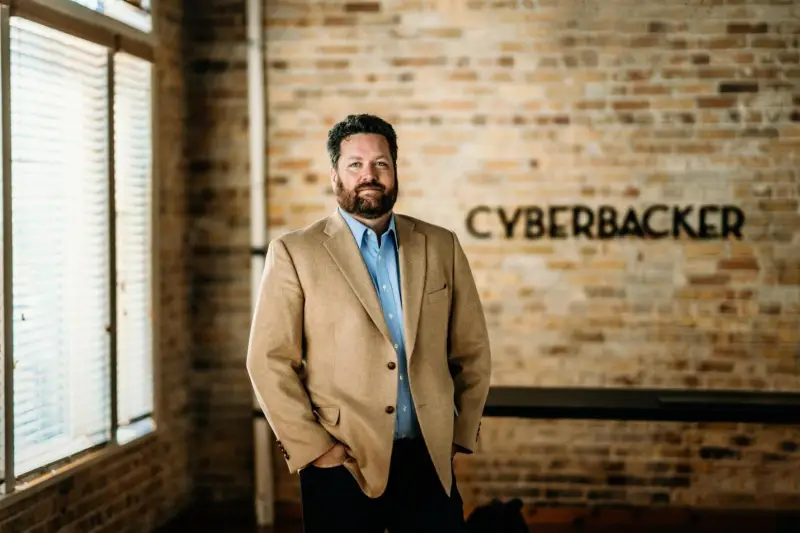Click here to get this post in PDF
In 1731, Benjamin Franklin’s publishing company was facing a problem that businesses today still wrestle with. He wanted to offer his “Poor Richard’s Almanac” in markets beyond his home city of Philadelphia, but he also didn’t want to overextend himself. His solution was an arrangement with a printer in Charleston, South Carolina, that looked very much like a modern-day franchise.
What Franklin and countless business leaders who followed him found in franchising was a solution to the key problems associated with scaling.
“For businesses, the primary benefit of franchising is rapid expansion with reduced financial risk and capital investment,” says Jason Stowe, VP of Franchise Development for Cyberbacker. “Franchising allows a business to grow its brand and reach without the need to directly manage new locations, thereby leveraging the capital and efforts of franchisees.”
Cyberbacker helps businesses identify and secure the ideal candidate for any position by providing world-class administrative support services from and to anywhere in the world. Since 2021, Cyberbacker has been expanding its reach through franchisees who operate as virtual outsourcing businesses. Stowe is an entrepreneurial leadership expert who guides Cyberbacker’s franchising efforts, ensuring franchisees have the mentoring and support they need to thrive.
“The franchising model enables businesses to scale quickly into new regions and markets with less direct investment in the construction, staffing, and operation of new outlets,” Stowe explains. “Franchisees fund the opening of their locations, take on the responsibility of day-to-day operations, and adhere to the franchisor’s established systems and brand standards, contributing to a consistent brand experience.”
How franchising empowers the entrepreneur
When done well, franchising is a win-win. Franchisors experience rapid expansion with reduced financial risk, while also creating new revenue streams through franchise fees, ongoing royalties, and marketing fees. For the franchisee, the model streamlines the growth process by providing access to a recognized brand with proven business processes.
“For entrepreneurs, the primary benefit of becoming a franchisee versus opening a standalone establishment is the reduced risk associated with operating under an established brand,” Stowe shares. “Franchisees gain access to a proven business model, brand recognition, training, and ongoing support from the franchisor.”
However, the success rate for small businesses in today’s marketplace is not encouraging, with statistics showing that one in five businesses fail within the first year and nearly half shut down by their fifth year. With franchising, entrepreneurs can bypass those early years, gaining access to a business that has proven its viability.
“By gaining access to the marketing, product development, and operational procedures of the franchise, entrepreneurs significantly reduce the need for the trial and error typically involved in starting a new business,” Stowe says. “The established reputation of the brand can also facilitate easier access to financing and customer attraction from day one.”
The limitations of franchising
Studies show most entrepreneurs launch out on their own because they want to be their own boss, looking for autonomy and the opportunity to call the shots. Franchising is limited in this area, as it imposes some restrictions on franchisees designed to protect brand reputation.
“A key misunderstanding about franchising is that the franchisee has full autonomy in running their business,” Stowe says. “While franchisees do own their businesses, they must operate within the parameters set by the franchisor, including adhering to corporate standards for branding, operations, and product offerings.”
As entrepreneurs weigh the pros and cons of franchising, their desire for creative control is a big consideration. Franchisors not only control the vast majority of the branding and marketing that goes on, but franchisees must pay for the services franchisors provide.
“The mechanics of franchising can limit creativity and flexibility in business decisions, contrasting with the independence of running a standalone business,” Stowe warns. “People often underestimate the extent of control maintained by the franchisor and the ongoing costs involved, including royalties and contributions to advertising funds.”
Focusing on the right franchise
As with any business, several factors come into play when considering the potential of a particular franchise opportunity. Studies estimate there are approximately 2,500 different types of franchises to choose from, with opportunities existing in virtually every industry. Before diving in, entrepreneurs must do a lot of homework to determine which will work best in their context.
“Whether now is a great time to pursue franchising depends on various factors, including economic conditions, the specific industry, and personal circumstances,” Stowe shares. “In periods of economic growth, consumer spending increases, potentially making it a favorable time to start a franchise. However, during economic downturns, some franchises, particularly those in recession-resistant sectors like fast food, services, and healthcare, may still offer stable opportunities. It’s crucial to conduct thorough market research, consider the resilience of the sector, and evaluate your financial readiness and business acumen before deciding.”
The franchise model has served entrepreneurs for hundreds of years, but success is far from guaranteed. Entrepreneurs exploring the idea must make sure they can work within the parameters franchisors impose and that they are choosing a franchise that capitalizes on a current market need.
You may also like: How To Choose A Good Franchise For Business?
Image source: Jason Stowe – Cyberbacker.com

